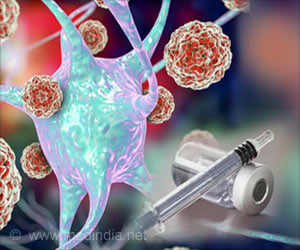Know about latest treatments for pancreas, breast and colon cancers and chemotherapy induced neuropathic pain presented at the annual Experimental Biology (EB) meeting in San Diego
Highlights:
- The Experimental Biology conference provides a unique platform for scientists across the United States to present the latest and game changing treatments and concepts for various cancers
- Cancer is one of the leading causes of mortality globally and scientists are constantly striving to create better and more effective cancer treatments and prevention.
Pancreatic ductal adenocarcinoma (PDAC), makes up for about 90 percent of all pancreatic cancers, and has a 5-year survival rate of onlyless than five percent. Pancreatic cancer is very often difficult to detect, and therapy is additionally complicated by p53 tumor suppressor gene mutations that render the tumor cells resistant to treatment.
Scientists from the Human BioMolecular Research Institute, University of California San Diego and ChemRegen, Inc. have created a novel compound that could be potentially useful in treating pancreatic cancer
- In earlier research, the team demonstrated that this compound killed PDAC cells both expressing and not having the p53 mutation. The compound was also found to inhibit tumor growth in a mouse model of invasive PDAC
- In their latest work, the scientists have showed that the compound works by uniquely targeting two human cell death pathways namely programmed cell death (apoptosis), and the intracellular scavenging system referred to as autophagy
- They have demonstrated that the compound exerts its effects through its ability to induce crosstalk PDAC cell death pathways.
2. Understanding Mechanisms of Chemotherapy Induced Nerve Pain
- In a new study, research teams from the University of Texas Health Science Center at San Antonio found that exposure to taxanes and vinca alkaloids anticancer agents led to an immediate pain response mediated through the peripheral nerve receptors that detect pain impulses
- They showed that the chemotherapy drugs cause over excitation of sensory neurons by specificactivation of an ion channel (TrpA1) involved in perception of pain.
- The study is among the first to demonstrate direct activation of sensory neurons by anti-cancer drugs and suggests a possible role for developing treatments for chemotherapy induced neuropathy by targeting TrpA1.
Indomethacin is a potent nonsteroidal anti-inflammatory drug (NSAID) found to have anticancer properties in animal models and in clinical trials.
A research team from University of Texas Health Sciences Center in Houston conducted a study using unmodified indomethacin and indomethacin modified with phosphatidylcholine (to counter NSAID induced injury in the gastrointestinal tract) to test its ability to inhibit colonic cancer cells.
- In mice-derived cultivated cancer cells, doses of both forms of indomethacin significantly suppressed colon tumor cell growth, with the phosphatidylcholine containing formulation found to be slightly more potent at the lowest dose that was tested
- Similarly, in mice injected with colon cancer cells, both forms of indomethacin brought about significant decrease in the amount of tumor compared to mice that got no treatment
4. Decoding the Mechanisms of Breast Cancer Growth and Spread
Cold-inducible RNA binding protein (CIRP) plays a critical part in regulating gene expression and response of cells to stress
- A research team from the University of New Mexico Health Sciences Center studied a mouse model of breast cancer that expresses higher levels of CIRP than normal to test its role in growth and spread of breast cancer
- They found that increased levels of CIRP inhibited the growth and spread of tumor cells
- These anti-cancer effects were associated with changes in the levels of cytokines (chemical mediators of the immune system). Specifically, the mice secreted lesser amounts of cytokines that promote tumor growth and progression; at the same time they secreted increased levels of cytokines that suppress cancer growth and metastasis.
Reference:
- A Conserved Pain Syndrome Resulting from the Acute Activation of TrpA1 by Chemotherapy Drugs - (https://plan.core-apps.com/eb2018/abstract/4a709b89-d3ff-46af-a215-42ebfc852802)
Source-Medindia










